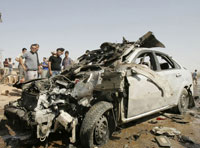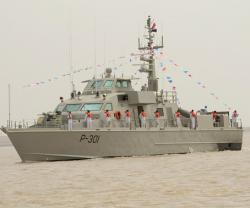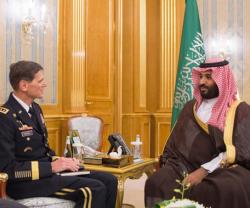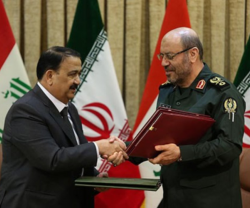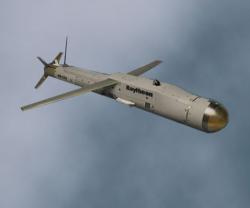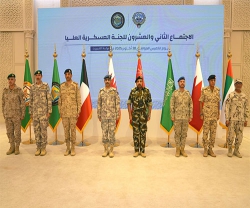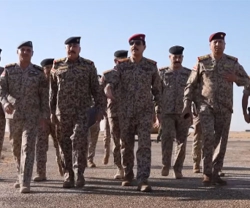July was the deadliest month in Iraq in almost two years, with 325 people killed in attacks, official figures released on Wednesday showed, and included the deadliest day here since December 2009.
Analysts pointed to political tensions inside Iraq and instability in neighboring Syria, where President Bashar al-Assad’s forces are fighting an uprising now in its 17th month, as potential causes of the spike in violence.
The statistics compiled by the health, interior and defense ministries showed that 325 people -- 241 civilians, 40 police and 44 soldiers -- were killed nationwide during July.
Another 697 people -- 480 civilians, 122 police and 95 soldiers -- were wounded. It was the highest monthly toll given by the government since August 2010, when figures showed 426 people killed and 838 wounded in attacks.
The previous highest official toll this year was for January, when government figures showed 151 Iraqis killed and 321 wounded.
Government figures are usually lower than those given by other sources, but the July toll was higher than a tally kept by AFP based on reports from security and medical officials.
While violence has decreased from its peak in 2006-2007, attacks still occur almost daily.
Of the 31 days in July, there were attacks on 27 of them.
The July 23 violence, in which some 259 people were also wounded in attacks across the country, was the deadliest single day of violence in Iraq since 126 people were killed and hundreds wounded on December 8, 2009.
The wave of violence consisted of at least 29 separate attacks in 19 cities, with most concentrated in Baghdad and areas to its north.
Two days later, al-Qaeda front group the Islamic State of Iraq (ISI), claimed the attacks, saying they marked the launch of a new campaign during the Muslim holy month of Ramadan.
“As part of the new military campaign aimed at recovering territory given up by the Islamic State of Iraq (ISI), the war ministry has sent its sons and the mujahedeen on a sacred offensive during the month of Ramadan,” the group said.
Iraqi Army Staff Brigadier General Hamid Mohammed Qamr told AFP that Wissam Karim al-Shilal, an alleged Qaeda leader accused of having planned and executed a July 23 attack on an army base that left 15 soldiers dead, was killed in clashes with Iraqi soldiers.
Qaeda in Iraq is regarded by Iraqi officials as significantly weaker than at the peak of its strength in 2006 and 2007, but it is still capable of spectacular mass-casualty attacks across the country.
“The reasons behind the escalation of violence in the country are political, security and strategic,” and linked to the conflict in Syria, said Ali al-Haidari, an Iraq analyst and specialist in security and strategic issues.
“The crisis in Syria has intensified between the regime and the armed groups, and these groups are made up of what is called the Free Syrian Army, and also of members of the Qaeda organization,” Haidari said.
The conflict has “resulted in the existence of a space for the Qaeda organization for movement between Iraq and Syria, and the organization is breathing more freely,” he said.
John Drake, a Security Analyst with AKE Group, pointed to hot summer temperatures making it more difficult for security forces to remain vigilant all day, and broader issues such as the departure of U.S. troops at the end of 2011, domestic political tensions, and Syria.
“Syria presents a real opportunity to terrorists. The lack of authority in large swathes of the country could provide these groups with extensive opportunity to consolidate their strength and launch attacks in the wider region,” Drake said by email.
Source: AFP; Photo: Reuters

